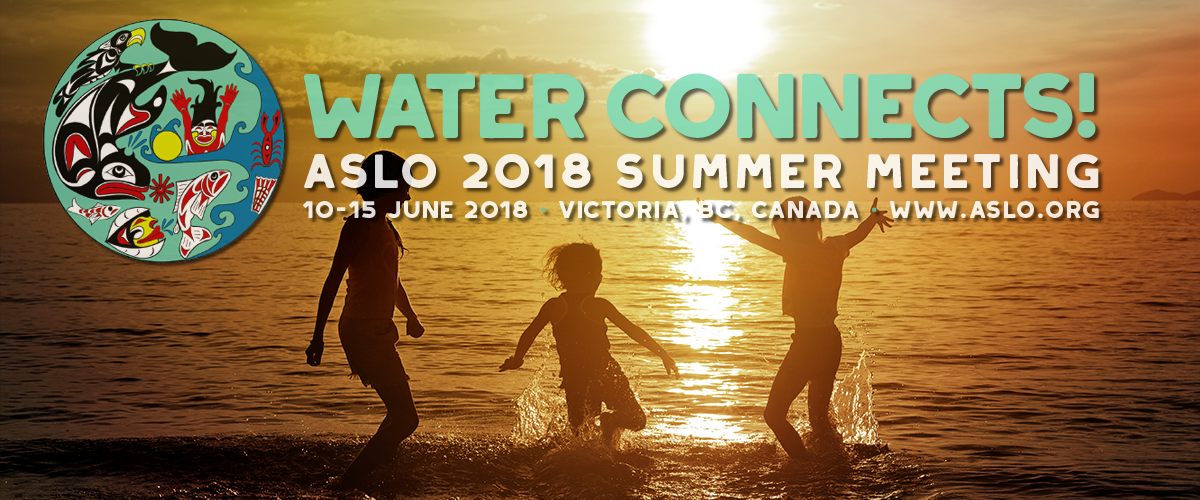ASLO 2018 Summer Meeting
WATER CONNECTS !!
ASLO 2018 Summer Meeting, 10th-15th June, Victoria (Canada)
Water connects everything and everyone! Water transcends and connects all spheres: the lithosphere, atmosphere, and biosphere – from fresh to salty, from microscopic to macroscopic. Water connects us to each other and to resources – across cultures and society, across politics and international boundaries. However, these elements are too frequently studied in isolation. This meeting will encourage you to bring your knowledge, curiosity, and creativity to connect with each other and to share your passion for water!
From the SINGEK Team, Ramon Massana (Project Coordinator and supervisor of ESR1), will participate in the following session:
SS53: Linking Metagenomics to Aquatic Microbial Ecology and Biogeochemical Cycles
Hans-Peter Grossart, Leibniz Institute for Freshwater Ecology and Inland Fisheries (hgrossart@igb-berlin.de)
David Walsh, Concordia University (david.walsh@concordia.ca)
Ramon Massana, Institut de Ciencies del Mar-CMIMA CSIC (ramonm@icm.csic.es)
Rebecca Vega Thurber, Oregon State University (Rebecca.Vega-Thurber@oregonstate.edu)
Marguerite Xenopoulos, Trent University (mxenopoulos@trentu.ca)
A general aim of microbial ecology is to observe, understand, and predict the distribution and interactions of microorganisms in the context of environmental conditions. Taxonomic profiling of different microbial communities often reveals significant but unexplained variations across aquatic environments both in space and time. Functional differences among organisms are often invoked as an explanation; and variation in gene content (assessed by metagenomics) often reveals dynamic relationships between metabolic pathways and environmental conditions, the strength of which typically depends on the magnitude of the environmental change between communities in different ecosystems. However, a major challenge in microbial ecology remains. Many taxa that appear functionally redundant at the metabolic pathway level do show significant variation across environments with different ecological features. Possible explanations include dispersal limitation, biotic interactions, and rapid adaptation to environmental conditions that are not easily predictable based on gene content alone. In this session, we will explore and discuss recent advances and current limitations about how large-scale meta-omics analyses can be integrated into biogeochemical and eco-evolutionary frameworks to better predict taxonomic and functional diversity patterns across aquatic ecosystems from lakes and rivers to oceans. This session will be the seed for a 2020 special issue of Limnology and Oceanography.
See you in Victoria or follow updates from the ASLO 2018 Summer Meeting in its Website or via Twitter.



Leave a Reply
Want to join the discussion?Feel free to contribute!